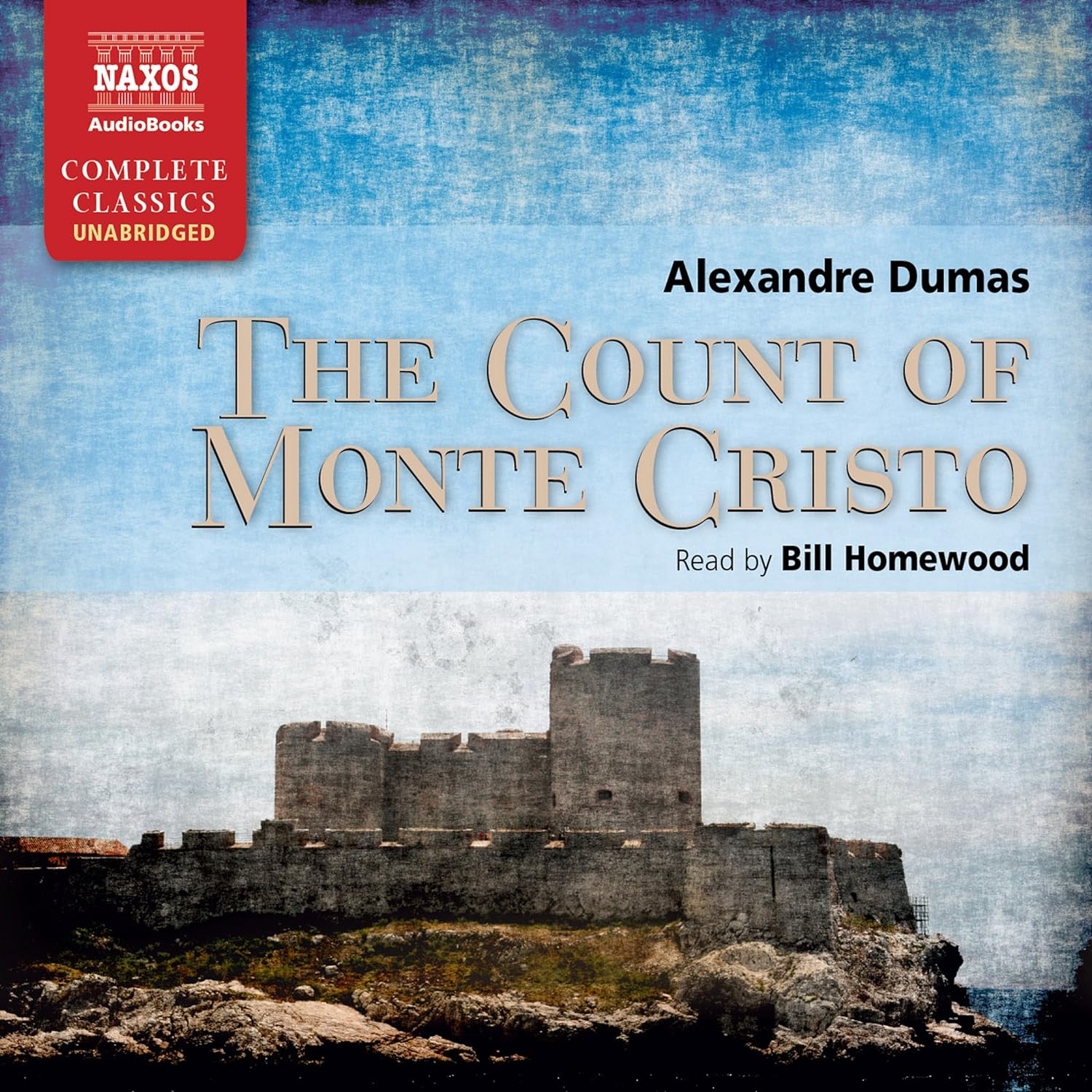The Count Of Monte Cristo: A Modern Review Of A Timeless Tale

Table of Contents
Enduring Themes in The Count of Monte Cristo
The Allure of Revenge:
Edmond Dantès's quest for revenge forms the very heart of The Count of Monte Cristo. His meticulous and elaborate revenge plot is both captivating and unsettling. The novel explores the ethical dilemmas inherent in seeking retribution.
- The psychological toll: Edmond's pursuit of revenge profoundly impacts his psyche, transforming him from a hopeful young man into a calculating mastermind. This transformation raises questions about the cost of vengeance.
- Justice vs. revenge: The narrative blurs the lines between justice and revenge, leaving the reader to question whether Edmond's actions are truly justified, even when directed at those who wronged him. The moral ambiguity inherent in his actions is a key aspect of the novel's enduring power.
- Ultimate consequences: The novel doesn't shy away from exploring the consequences of Edmond's actions, demonstrating that even successful revenge rarely brings lasting peace or happiness. This resonates with modern audiences who understand the cyclical nature of violence. Many modern films and shows, such as Peaky Blinders and The Punisher, explore similar themes of revenge and its consequences.
Betrayal and the Fragility of Trust:
Edmond's journey is fueled by the profound betrayal he suffers at the hands of those he once considered friends and allies.
- Fernand Mondego's jealousy: Fernand's envy of Edmond's relationship with Mercédès drives his treacherous actions, highlighting the destructive power of unchecked ambition.
- Danglars's avarice: Danglars's greed and thirst for power lead him to betray Edmond, revealing the corrupting influence of wealth and ambition. This resonates with modern concerns about corporate greed and financial corruption.
- Villefort's ambition: Villefort's desire to protect his own reputation and career compels him to participate in Edmond's wrongful imprisonment, showcasing the dangers of unchecked power within institutions. Such betrayals mirror modern experiences in the workplace and personal relationships, underscoring the fragility of trust in all areas of life.
Redemption and Forgiveness:
While revenge is central, The Count of Monte Cristo also grapples with the possibility of redemption and forgiveness.
- Edmond's arc: While initially consumed by vengeance, Edmond displays moments of compassion and mercy, suggesting a potential for redemption. His character arc highlights the complexities of human nature and the possibility of change.
- Forgiveness and reconciliation: The novel presents varying degrees of forgiveness and reconciliation among the characters. Some find redemption, while others are consumed by their past actions. The ending leaves the reader to ponder the possibility of genuine forgiveness and its implications.
- Modern relevance: The question of redemption resonates deeply in a world grappling with issues of restorative justice and rehabilitation. The novel encourages reflection on the complexities of forgiveness and whether it's truly achievable in the face of profound betrayal.
The Count of Monte Cristo: A Modern Adaptation
Modern Interpretations and Retellings:
The Count of Monte Cristo has inspired countless adaptations across various media.
- Movie adaptations: Numerous film versions, from classic Hollywood adaptations to modern interpretations, demonstrate the story's adaptability and enduring popularity. These adaptations often update the story's setting and characters while preserving the core themes.
- TV series: Television adaptations, such as the recent French mini-series, offer a more nuanced exploration of the characters and their motivations.
- Modern retellings: Contemporary novels and graphic novels reimagine the story for a modern audience, offering fresh perspectives on classic themes. These retellings often explore the psychological aspects of revenge and betrayal in greater depth.
Relevance of the Story to Contemporary Issues:
The novel's themes remain strikingly relevant to contemporary society.
- Social injustice: Edmond's wrongful imprisonment highlights the enduring problem of social injustice and the abuse of power within systems designed to protect citizens. Modern parallels can be drawn to wrongful convictions and systemic biases within the justice system.
- Political corruption: The novel exposes the corruption and deceit at the heart of political power, a theme that remains tragically relevant in many parts of the world today. The abuse of power for personal gain is a constant thread throughout history and continues in modern politics.
- Abuse of power: The novel's exploration of how power corrupts resonates strongly in today's world, with countless examples of individuals and institutions abusing their authority for personal gain or to suppress dissent.
The Literary Merit of The Count of Monte Cristo
Dumas's Masterful Storytelling:
Dumas's writing style is a significant contributor to the novel's enduring appeal.
- Suspense: The intricate plot, filled with twists and turns, keeps the reader guessing until the very end. Dumas's mastery of suspense is a hallmark of his storytelling.
- Vivid descriptions: The author's vivid descriptions bring the settings and characters to life, transporting the reader to 19th-century France and beyond.
- Memorable characters: The memorable characters, each with their own motivations and flaws, contribute to the novel's enduring popularity. Their complexities continue to spark discussion and analysis.
- Historical context: The historical setting of the Napoleonic era adds depth and richness to the narrative, providing a context for the political intrigue and social upheavals that shape the story.
The Novel's Enduring Legacy:
The Count of Monte Cristo holds a significant place in literary history.
- Literary legacy: Its influence on subsequent literature, particularly in adventure and revenge narratives, is undeniable. Many writers have drawn inspiration from Dumas's masterpiece.
- Enduring appeal: Its enduring popularity stems from its captivating plot, relatable characters, and exploration of universal themes.
- Continued influence: The novel's continued adaptation into various media formats demonstrates its enduring relevance and appeal across generations.
Conclusion: Revisiting The Count of Monte Cristo
This article has explored the enduring themes, modern adaptations, and literary merit of The Count of Monte Cristo. We've seen how its exploration of revenge, betrayal, redemption, and the abuse of power continue to resonate with contemporary audiences. The novel's masterful storytelling and memorable characters solidify its place as a timeless classic. Its enduring appeal is a testament to Dumas's skill as a writer and the enduring power of its central themes. Read The Count of Monte Cristo today and discover the timeless appeal of this extraordinary tale. Explore the world of The Count of Monte Cristo – you won't be disappointed!

Featured Posts
-
 Ufc Des Moines Robertson Du Canada Face A Sidey Combat Confirme
May 04, 2025
Ufc Des Moines Robertson Du Canada Face A Sidey Combat Confirme
May 04, 2025 -
 Ajagbas Increased Training Regime For Bakole Clash
May 04, 2025
Ajagbas Increased Training Regime For Bakole Clash
May 04, 2025 -
 Nhl Standings Crucial Friday Matchups And Playoff Scenarios
May 04, 2025
Nhl Standings Crucial Friday Matchups And Playoff Scenarios
May 04, 2025 -
 Corinthians X Internacional Onde Assistir Ao Vivo Horario E Escalacoes
May 04, 2025
Corinthians X Internacional Onde Assistir Ao Vivo Horario E Escalacoes
May 04, 2025 -
 3 Million In Undisclosed Nuclear Stock Governor Cuomo Faces Scrutiny
May 04, 2025
3 Million In Undisclosed Nuclear Stock Governor Cuomo Faces Scrutiny
May 04, 2025
Latest Posts
-
 Verstappens New Arrival Balancing Fatherhood And Racing
May 04, 2025
Verstappens New Arrival Balancing Fatherhood And Racing
May 04, 2025 -
 Miami Gp Verstappens Family News
May 04, 2025
Miami Gp Verstappens Family News
May 04, 2025 -
 Max Verstappen New Baby Miami Gp Focus
May 04, 2025
Max Verstappen New Baby Miami Gp Focus
May 04, 2025 -
 Formula 1 Max Verstappen Becomes A Father
May 04, 2025
Formula 1 Max Verstappen Becomes A Father
May 04, 2025 -
 Verstappens Baby News First Child Born Ahead Of Miami Gp
May 04, 2025
Verstappens Baby News First Child Born Ahead Of Miami Gp
May 04, 2025
